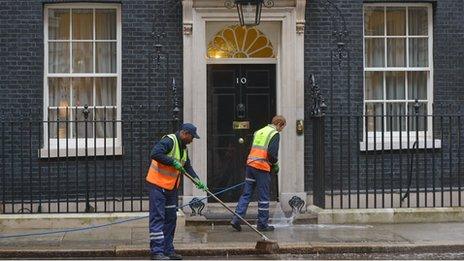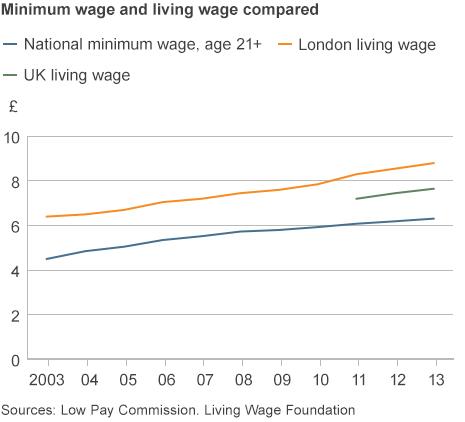TUC: Majority of women workers 'earn less than living wage'
- Published

The TUC called on the government to take the lead on paying the living wage
The majority of women who work part time earn less than the living wage, according to the Trades Union Congress (TUC).
The umbrella group for unions said there is a gender pay gap between part-time workers, which it described as "scandalous".
Business lobby group the CBI said employers "work hard to ensure they comply with the law" on gender pay.
It added that "the living wage is simply not affordable for many firms".
The TUC said that the majority of women working part-time earn less than the living wage in over 50 local authority areas across the UK.
Moreover, they earn only 66p for every pound earned by men working full-time - a pay gap of 34.2 per cent - the union lobby group said.
"Women are bearing the brunt of growing in-work poverty across Britain today," said TUC General Secretary Frances O'Grady.
The lobby group called on government to "lead by example" and ensure all Whitehall departments pay the living wage.
It said that UK workers are "suffering the longest real wage squeeze in over a century."
Business lobby group the CBI said that for many businesses, paying the living wage would not be economically viable.
"It is illegal to pay someone less for a job because of their gender, or because they work part-time. Companies work hard to ensure they comply with the law," said Rob Wall, CBI head of education and employment policy.
"The national minimum wage is set by the independent low pay commission to ensure wages rise for low paid workers without costing jobs. The living wage is simply not affordable for many firms."
The living wage, which is promoted by a foundation, is based on the amount an individual needs to earn to cover the basic costs of living.
It is higher than the £6.31 statutory minimum wage.
The living wage is recommended at £8.80 in London, and £7.65 in the rest of the UK.

- Published24 June 2014

- Published2 November 2014

- Published24 June 2014

- Published18 June 2014

- Published4 September 2013
